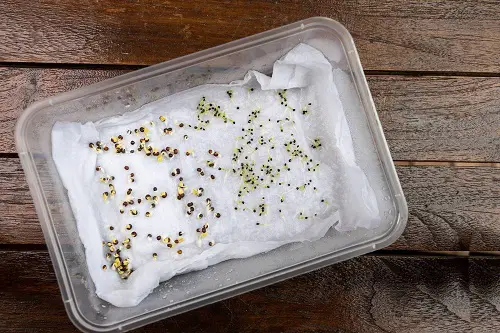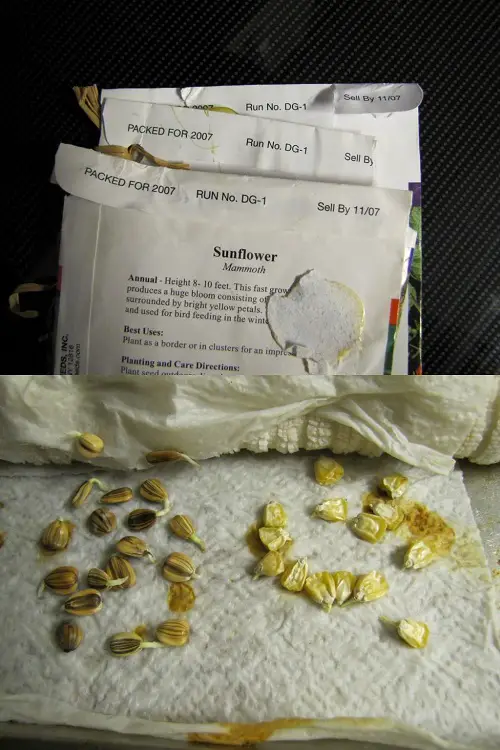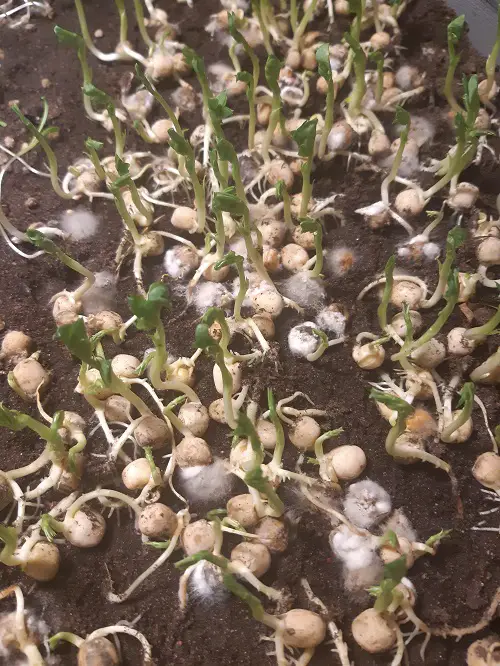Why waste time on seeds that aren’t viable? Here are 4 best tricks to find out if seeds will germinate or not!

Sometimes, the healthiest-looking seeds may not sprout, wasting your time. However, if you use these tips, you will know quickly if the seed is viable for germination and save a lot of waiting time!
Tricks To Find Out If Seeds Will Germinate
1. Water Test

Let’s start with the easiest–the water test! Drop your seeds in a glass jar or vessel with water for about 15 minutes. If the seeds sink, they are good to sprout, but if they float, discard them. If you aren’t planting the good seeds immediately, dry them off and store them safely until you are ready.
However, this method isn’t foolproof, especially for smaller seeds. Some types may float due to air pockets inside, and some may sink after absorbing water. For instance, radish, marigold, acorn, and even marijuana seeds that float may start sprouting a day after if left in the water. But this is a great place to start, anyhow!
You can use this method to grow these fast-growing herbs that also can be grown from seeds
2. Germination Test

Now we’re getting serious about this germination business! Even master gardeners rely on this trick to discover if their seeds will germinate. Grab your gardening apron and follow our advice!
Place ten or more seeds on one side of a slightly damp paper towel and fold the rest over the seeds. Insert this damp towel sandwiched into a Ziploc bag and seal it. Now leave this seed package in a warm, humid area, and without touching it, obsess over it until sprouts emerge.
Depending on the type of seed, in a week to ten days, you’ll know which of these ten seeds made it out alive. Now you’ll have a clear indication of how many seedlings you’ll get per batch of seeds and can prepare accordingly. Also, check out these seeds that germinate best in paper towels.
3. Age Of Seeds

Not exactly a test, but your seed’s age is a very good indicator of its viability. If you’ve bought the seeds, the information is on the package, and if you are retrieving old, stored-away seeds, simply jog your memory.
Most vegetable seeds are good for a few years, but exceptions exist. Some, like onions, go bad after the first year, while the more enthusiastic lettuce can stay viable for around five years. So, look up these specifics online before anything else.
Whatever the expiry might be, the fresher they are, the better. On average, seeds less than 2 years of age germinate more successfully.
There are a few things you can do to keep your seeds potent. Keep them dry, store them in dark spots in airtight containers, and keep them cool.
4. Inspect Your Seeds

This one’s for those hardened by failure. Perhaps, after so many attempts, you can tell when your seed has mold or is broken that it will likely not survive its germination test. But even for the beginner, simply pay attention, and you can tell the difference between a good and bad seed without doing many of the tests.
If the seed feels lighter, emptier, or even discolored, these are tell-tale signs that it is not worth sowing. You can check out this article that answers a similar question: do grass seeds go bad?
There you have it, folks! Use these simple tests, avoid wasting time on seeds that won’t sprout, and direct your energy to the good ones! Happy gardening!



